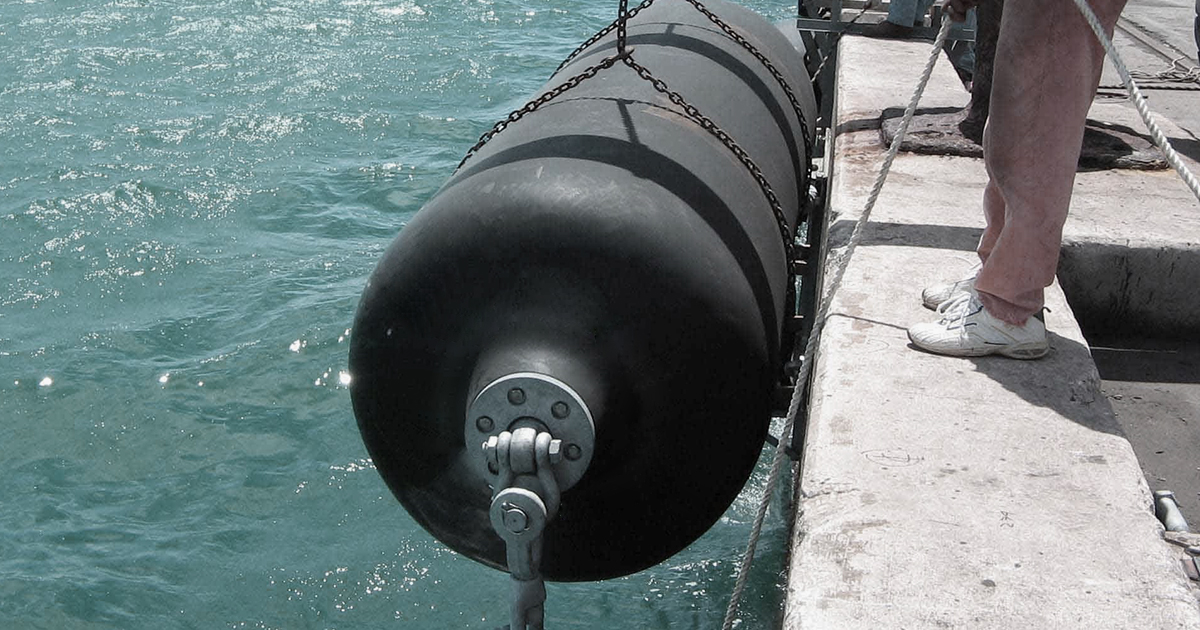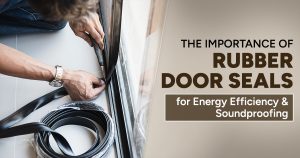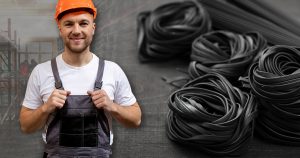Serving as a cushion between your boat and the dock of other boats, Marine Fender protects your boat or marine vessel from the impacts of docking. They are designed to be applied to both the boat and the mooring conditions and provide adequate protection while eradicating any damage from these regular collisions.
Also, in case the boats are moored together, they can crash into or constantly rub against one another which can further take a toll on the boat’s hull.
This blog pens down a detailed understanding of Marine fenders, their types, applications, and how they are crucial in maintaining the integrity of your vessel.
The Role of Rubber Materials in Marine Fenders
Marine Fenders are manufactured in a variety of sturdy, durable materials and the most common ones are plastic, rubber, and foam elastomers. Rubber materials play a crucial role in this aspect due to the design and functionality of marine fenders.
Ambassador Industrial, a leading provider of industrial and marine products supplies its customers with high-quality rubber and plastic fenders which are highlighted for their durability and effectiveness in various marine applications. The high durability, impact absorption, low maintenance, and long service life make them a top-notch choice for various marine applications and infrastructure.

Types of Marine Fenders
1) Inflatable Marine Fenders
The Inflatable Marine Fenders are the most popular types due to their versatility and ease of use. They are made from double materials such as PVC or rubber and can be inflated to achieve the desired level of cushioning. These fenders are ideally used in docking for recreational boats, yachts, and for mooring boats. These fenders bring various advantages to your door that range from adjustable pressure to compact storage to save valuable space on board.
2) Foam Marine Fenders
Made from closed-cell foam, these marine fenders are lightweight and highly buoyant which is typically covered with a tough outer shell to resist wear and tear. These materials are mainly used in Marinas and Harbours with frequent boat traffic and docking. They are also used for commercial vessels that are suitable for larger boats and ships due to their durability. Foam Marine Fenders are packed with advantages which make them maintenance-free and durable as they hold the ability to resist punctures and abrasions, making them ideal for rough environments.
3) Plastic Marine Fenders
These are crafted from melting raw plastic material which is forced through custom die to create a durable marine fender. They can be extruded in a variety of colours and are designed to absorb and dissipate any risk of damage to both the marine vessel and dock. Plastic Marine Fenders are low maintenance, resistant to UV and corrosion and easy to install making plastic a sustainable choice of material for marine fenders.
4) Rubber Marine Fenders
Known for their high durability and ability to absorb significant impacts, these fenders are made from solid rubber and come in various shapes such as cylindrical, spherical and D-shaped. They are often used in commercial shipping environments where heavy-duty protection is needed and are also suitable for large boats and ships that experience heavy-duty impacts. These fenders also carry advantages such as high durability due to their resistance to harsh environmental conditions and impacts.
Choosing the Right Marine Fender
It is crucial to ensure optimal protection and performance for your boat which is why we have come up with a guide to choose the best marine fender that matches your needs.
1. Boat Size and Type
Ensure that the fender size matches your boat’s dimensions and remember that the bigger the boat the more robust its features need to be. Consider the type of boat, for example, a yacht or a commercial vessel as it influences the fender’s material and choice of design.
2. Docking and Mooring Conditions
You can try considering the conditions where the fender will be used. For high-traffic areas, you can opt for durable fenders like rubber or foam to handle frequent impacts. In the case of low-traffic areas, an inflatable or plastic fender may be sufficient for protection.
3. Fender Shape and Configuration
It is important that you focus on the shape and configuration of the fender. At Ambassador Industrial, we have an in-house design facility where we can make custom designs and cut custom dies. We will then carry out a sample run of the fender which you can test and where we can also tweak the design until you are satisfied.
4. Material and Durability
Besides everything else, choosing a material that can withstand environmental factors such as UV rays, saltwater, and temperature fluctuations matters. Rubber fenders are known for their durability, convenience, and adjustability, especially in matters like these.
Maintenance and Care of Rubber Marine Fenders
- Periodic Inspection: Staying alert for any signs of wear and tear like cracks or abrasions will address the individual issues of the Marine Fenders and help in maintaining their effectiveness which leads to extending their lifespan.
- Cleaning: Clean Rubber Fenders will only make your task easier. To successfully execute this process, you must avoid harsh chemicals which will cause damage to the rubber material and keep it minimalistic by using mild soap and water.
Conclusion
The performance of your marine fenders depends significantly on the material it is built with. Their high durability, impact absorption, low maintenance, and long lifespan make them a top priority for multiple marine applications.
Whether for commercial shipping, recreational boating, marinas, or luxury yachting, rubber marine fenders offer reliable protection and cost-effective solutions.
At Ambassador Industrial, we offer you rubber fenders that are engineered to meet the demanding needs of the marine industry. They provide you with robust protection and ensure the longevity of your vessel and marine infrastructure.
Reach out to us by calling +61 3 9796 5588 or writing to us at info@ambassaindustrial.com.au.





